Ahead of the pontiff’s visit to Ireland in 2018, I took to the Dublin City streets to gather some of my generation’s thoughts on the Catholic Church in the age of Pope Francis. I spoke to six Dubliners between the ages of 18 and 31, as well as one woman in her 50s with two teenage sons, to find out who would be making plans to see the Pope in person. Would he garner a turnout like Pope John Paul II’s visit in 1979, with a whopping one million Irish gathered in Dublin’s Phoenix Park?
What I found was very interesting: across the board, Pope Francis is seen in a very positive light. The younger generation views him as a Pope with a progressive promise and ethos; the older generation describes him as likable and “human.” However, despite this, everyone I spoke to said they probably would not make plans to see him, either out of complete religious disinterest, or religious ‘laziness.’ While they respect the Pope, today’s generation of young Dubliners has seemingly checked out of religious affiliation completely, with most identifying as atheist, or non-traditional, non-practicing Christians.
Most said that growing up in Ireland, they went through all the steps. They went to Catholic school, made their first Holy Communion and Confirmation and attended Mass with their family. However, after entering adulthood, they’ve unanimously rejected institutional religion and believe our generation will be the last one in Ireland to have practiced these religious steps as youths.
“They have the Papal Cross in the Phoenix Park from when John Paul II was there, and I guess you could look at that as a monument of times gone by. It’s like a relic, or metaphor for the Catholic Church,” Dublin student Conor, 24, told IrishCentral. He said the only day a year he attends church is on Christmas, “just to placate [his] mother.”

Pope John Paul II in Ireland: They have the Papal Cross in the Phoenix Park from when John Paul II was there, and I guess you could look at that as a monument of times gone by. It’s like a relic."
“I don’t think the younger generations are interested in religion at all, really. This country has kind of grown out of religion. I always wonder at what point will they stop doing the Angelus at 6 o’clock on RTE,” he said. “My mother is religious, so when the Angelus comes on the radio, she drops everything and says her prayers. But she’s one of very few who still do that. It’s all older generations. I think when those generations die out, the Angelus and all of that will be gone.”
Cathleen, a woman in her mid-50s from Dublin, attended Pope John Paul II’s 1979 Mass in Phoenix Park when she was a teenager. Today she has two sons, ages 14 and 18; she brings her younger son to Sunday Mass, but the elder has stopped coming. Although she identifies as Catholic, Cathleen told IrishCentral that she would not attend the Pope’s visit if it meant she had to travel out of Dublin.
In her opinion, today's younger generation has adopted a more autonomous role and Cathleen doesn’t believe she could bring her sons along if they don't want to go.
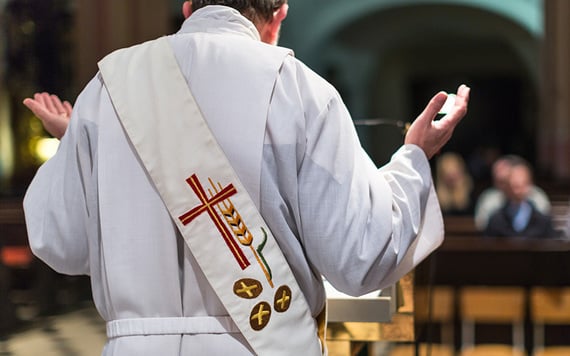
On Mass on Dub said "most people I know do not go regularly. That aspect of it is gone.”
“Dragging my kids along to something like that – they just wouldn’t go. Certainly teenagers wouldn’t be interested in going along to the Pope’s visit. I’m one of seven kids, and my mother brought all seven of us back then, and I don’t think we got a choice. We walked from where we lived to the Phoenix Park, which was about four miles. We walked, and we stayed for the Mass.”
“My older boy doesn’t go to church anymore, and that’s totally up to him – that’s his choice. I think that certainly fewer people practice their religion, but a lot of people I know would still call themselves Catholic and have their child go through the Holy Communion and Confirmation, and go to Mass on Christmas and Easter. But most people I know do not go regularly. That aspect of it is gone.”
I asked the interviewees if they had ideas to explain the dwindling influence of Catholicism in Ireland. Many believe it has to do with the sexual abuse and corruption scandals surrounding the Catholic Church. A few think that the previously overbearing presence of the Church has created a sense of rebellion: “Maybe because the Church was so strong, and ruled people’s lives so closely back in our parents’ days and before that, there has been a bit of a backlash,” Cathleen said.
However, perhaps the most honest and interesting response chalks it up to modern laziness.
“There’s a reaction against religion in this country. But there is also a laziness – I’m guilty of this myself – a laziness about being a Catholic. I don’t want to get up on a Sunday morning and go to Mass. To follow the Catholic religion takes effort. It takes denying yourself sometimes,” said Matthew, a 22-year-old trainee accountant from Dublin.
“People would say that they’re disillusioned with the Catholic Church, but I wonder sometimes is that just because people are too lazy.
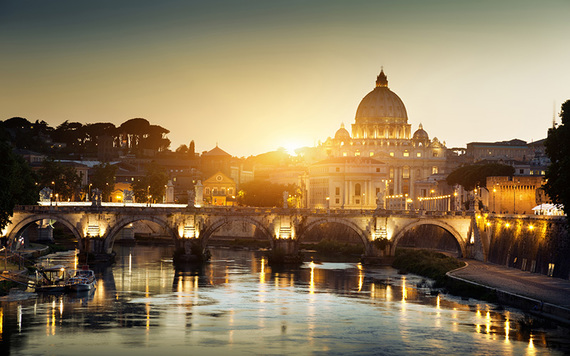
Vatican City, Rome: "“People would say that they’re disillusioned with the Catholic Church, but I wonder sometimes is that just because people are too lazy."
“There’s a blame being put on the child abuse scandals and the various organizations that did do bad things – there’s no doubt about it. But there’s all of the blame being put on them. I’m wondering do people use that as an excuse not to do the hard bits.”
Two people I spoke to separately, student James (19) and educator Gillian (31), both touched upon a fondness for Pope Francis – but while they grew up in Catholic schools, they described having more personalized forms of religion that they abide by on their own terms, rather than associating with the institution of the Catholic Church. They both said they are not planning on seeing Pope Francis during his 2018 visit to Dublin.
“I feel that religion should be looked at as religion on its own – you shouldn’t have to practice by going to a place. So a church means very little to me,” Gillian told IrishCentral. “I think the religion itself would be better without the clergy and the church. I don’t mind people holding these beliefs, but it has been such a problematic place, and a problematic establishment, that I just don’t see its point anymore.
“I teach a culture class, and a lot of my students are 18, and a lot of them would claim to be atheist,” she said.
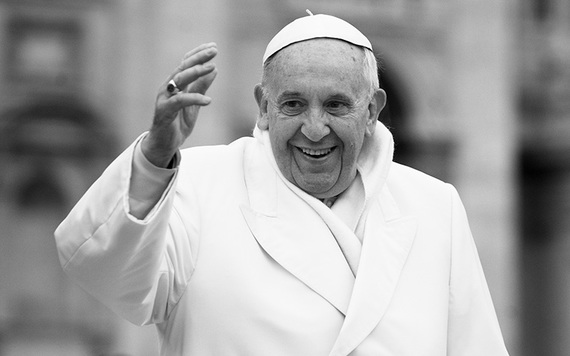
“I think the religion itself would be better without the clergy and the church,” according to Gillian.
James said: “I wouldn’t have enough interest to see the Pope in person, and I know that when I want to know what it is he said, I will be able to find the information online or on the television.”
A student at a Jesuit school, James does not closely align his beliefs with those of the Catholic Church, but has his own personal faith that he abides by. However, he does support Pope Francis, and has described him as “quite brave.”
“I believe there is a God, and I have my own personally developed faith as such, which agrees with Catholicism in some respects, but not in all of them. So I’ve kind of developed my own idea of faith.”
“In our school we very much feel that he does embody that ethos of faith through action, and a faith that does justice in the world,” he said of Pope Francis.
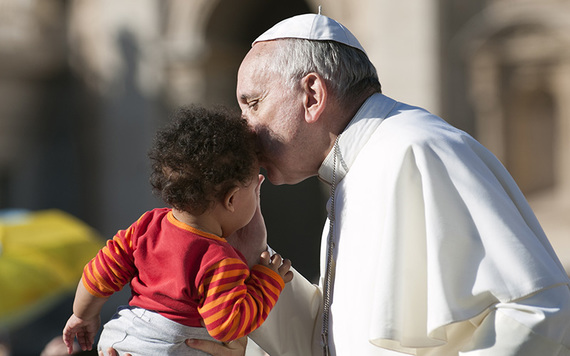
“I think in general for people our age, the attitude seems to be that Pope Francis is certainly a lot more progressive than his predecessors, and I think we appreciate that."
“I think in general for people our age, the attitude seems to be that Pope Francis is certainly a lot more progressive than his predecessors, and I think we appreciate that. And we’re aware that even within the Catholic Church, there is opposition to his stances. I heard recently about a group of cardinals in the Vatican who are trying to stop the things he’s doing that do seem appealing to people our age, like not condemning homosexuals.”
“I imagine that we are probably the last generation that will grow up being brought to church by our parents every Sunday. I think that when our generation becomes parents, it will no longer be the default and the norm. It will be very much something people will opt into, rather than opt out of.”
Read more: Irish priests won’t ask for marriage from Pope Francis
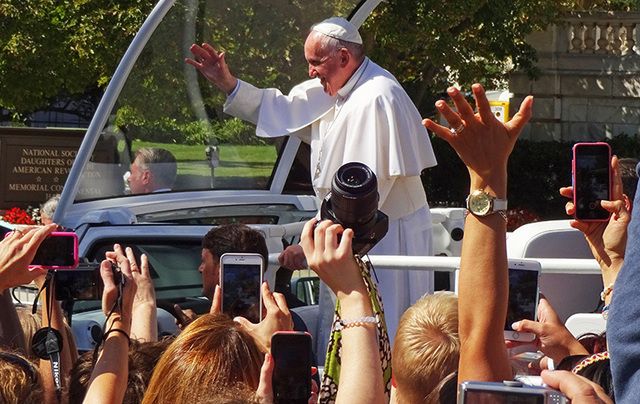



Comments